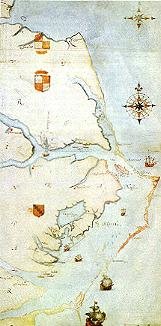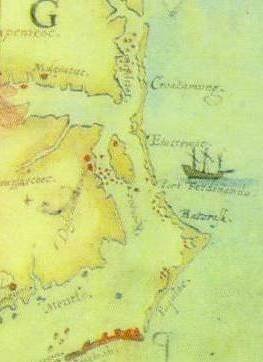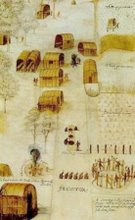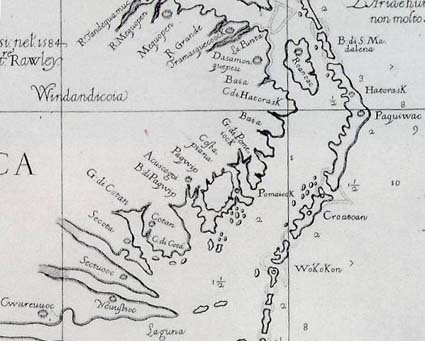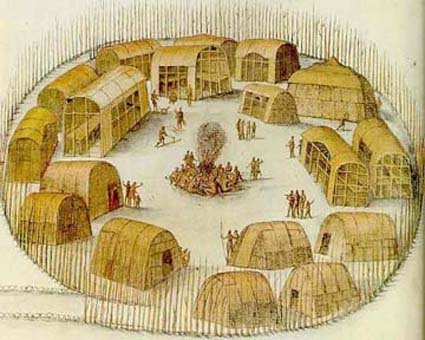Hatteras Island is such a lovely place as are the residents. It’s the essence of small-town Norman Rockwell America. This evening, Danny Couch, a local historian and tour operator hosted a civic event at the Fessenden Center in Buxton. Danny invited three of the local senior citizens, although you’d never have believed they were senior citizens by looking at and listening to them. One man is still a full time commercial fisherman, and let’s just say he and the other gentleman were Boy Scouts in the 40s and 50s. I won’t name names, since I don’t have permission, but listening to them was simply delightful as they talked about life on Hatteras the way it used to be. One story was about going “up the beach”. Only “bankers”, meaning “sand banks” type of bankers, would know what going up the beach means. Roads didn’t exist here at all initially, and there were two ways to get up or down the island by vehicle. During low tide, you drove literally on the packed sand along the beach. During high tide, you had to take a much worse mid-island road. Tires here were permanently nearly deflated, as the only way not to get stuck in the sand was and is to let some of the air out of your tires. Locals carried a hand pump with them in case they came to a hard surface, especially after the first 17 miles of road was completed to connect Avon, Buxton and Frisco together so a school bus could pick up children so they could share a school. The lady of the three told about boat rides to the mainland. There were no ferry boats in the 1940s. To go from here to Elizabeth City was, best case, an 8 hour ordeal, on a boat with no seats, and more importantly, no bathrooms. In bad weather, it was longer and worse. She told of making the trip once in a storm and how sick she was as they put the passengers below deck in the front hold among the cargo. Better sick than overboard, but to this day, she has vivid memories of the trip….and not good ones. She talked a bit as well about the hurricanes here which are simply a fact of life. She mentioned that storms then didn’t have names like they do today, and the way you remembered them was by the lines on the wall paper from the flood water. “That one was from ’37 and that one was from ’44.” She also mentioned that you drilled holes in the floor so that the storm tides and water didn’t take your house out to sea. You basically opened your house up like a big sieve so that the water could pass through it and not push the house off the foundation. Today, most homes here are build on stilts about 20 feet in height. I counted the steps this evening to get up to the door of the house where we are headquartered and it was 17 steps. The wild “banker ponies” are part of life here as well, especially on Ocracoke Island. The only mounted Boy Scout troop to ever exist was there for a few years and both of the gentlemen who spoke this evening were part of that troop. They caught and tamed their ponies and the biggest problem they had was that the male horses kept escaping and going back to the herd. Now Ocracoke Island isn’t large, and they knew where the herds lived, so they had to keep going back and luring their horse away from the herd with sweet treats…..which of course lasted long enough for their “pony” to find an opportunity to escape again. This island didn’t have a bridge to the mainland until in the 1960s, so Outer Bankers tended to be extremely self sufficient and not reliant on items from off the island. They went to the mainland maybe 2 or 3 times a year to shop. Milk was mostly canned and proteins were mostly seafood of various kinds, depending on the season and what the sea was producing. For this reason, the island was not as affected by the Great Depression in the 1930s as were other locations. As one man put it “we were already poor and didn’t know the difference”. Another man summed it up well by saying that they didn’t realize how much fun they were having at the time, but now, looking back, they had a wonderful life and enjoyed those early years immensely. And tonight, those of us in attendance certainly enjoyed the stories they graciously shared with us as well. |
This blog is © History Chasers
Click here to view all recent Lost Colony Research Group Blog posts



